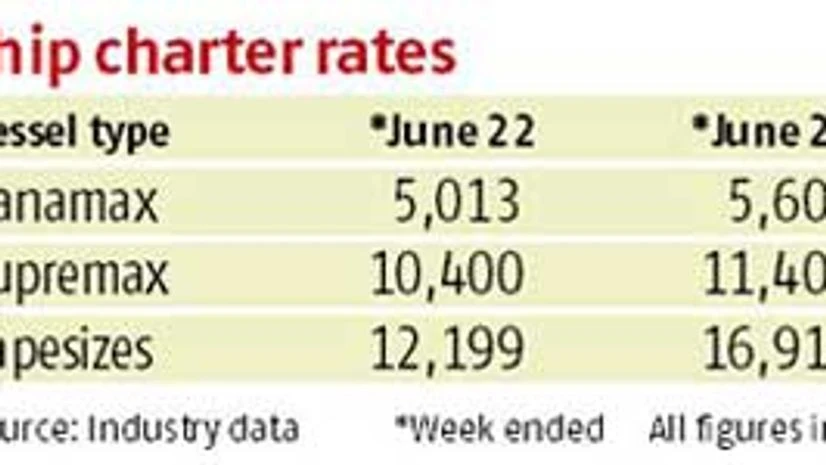The recent surge in the Baltic Dry Index (BDI), which tracks freight charges, has done little to cheer the shipping industry, which has written off the trend as a temporary phenomenon limited to just the bulk trade.
The BDI, issued daily by the London-based Baltic Exchange, provides an assessment of the price of moving the major raw materials by sea. The index was up 14 per cent last week, reaching the highest level of 2013 at 1,027 points.
“A lot of this is because of increased demand of iron ore from China, the largest producer of steel. The increase in demand has led to the rise in freight rates,” said a senior shipping company executive, requesting anonymity.
The movement of coal from Indonesia towards India and West Asia also contributed to the rise. “There are some global cues that have led to a bounce in rates. It keeps happening from time to time and doesn’t mean that turnaround time for the shipping industry is here. It is anyway not a huge increase,” said Anil Devli, chief executive officer, Indian National Shipowners Association.
Besides bulk trade, the sector is expecting tanker rates to flare up due to the unrest in Egypt. If the trouble there continues, it could impact the movement of vessels through the Suez Canal, leading to a significant increase in the number of days a ship has to take with an alternative route via the Cape of Africa.
“The availability of ships could also reduce, leading to supply crunch in the market. Much of the market goes on speculation and people will start stocking up oil as these concerns rise,” said the shipping company executive.
Tanker rates could also be impacted because of the expected demolition of capacity in the sector. Ten per cent of the total 500-600 Suezmaxes currently operational around the globe are likely to be scrapped this year.

This is not just to do away with old vessels but also to ease out the oversupply of vessels currently ailing the market.
There was a temporary surge of about 17 per cent in the BDI between December 2012 and January 2013. According to experts this was also because of a rise in freight demand by Chinese steel companies for re-stocking of iron ore and coal ahead of the Chinese New Year in February.
The global economic slowdown and lower freight rate situation, coupled with the oversupply of vessels, have created a demand-supply imbalance. Shipping companies are not expecting a respite in this situation before 2014.

)
